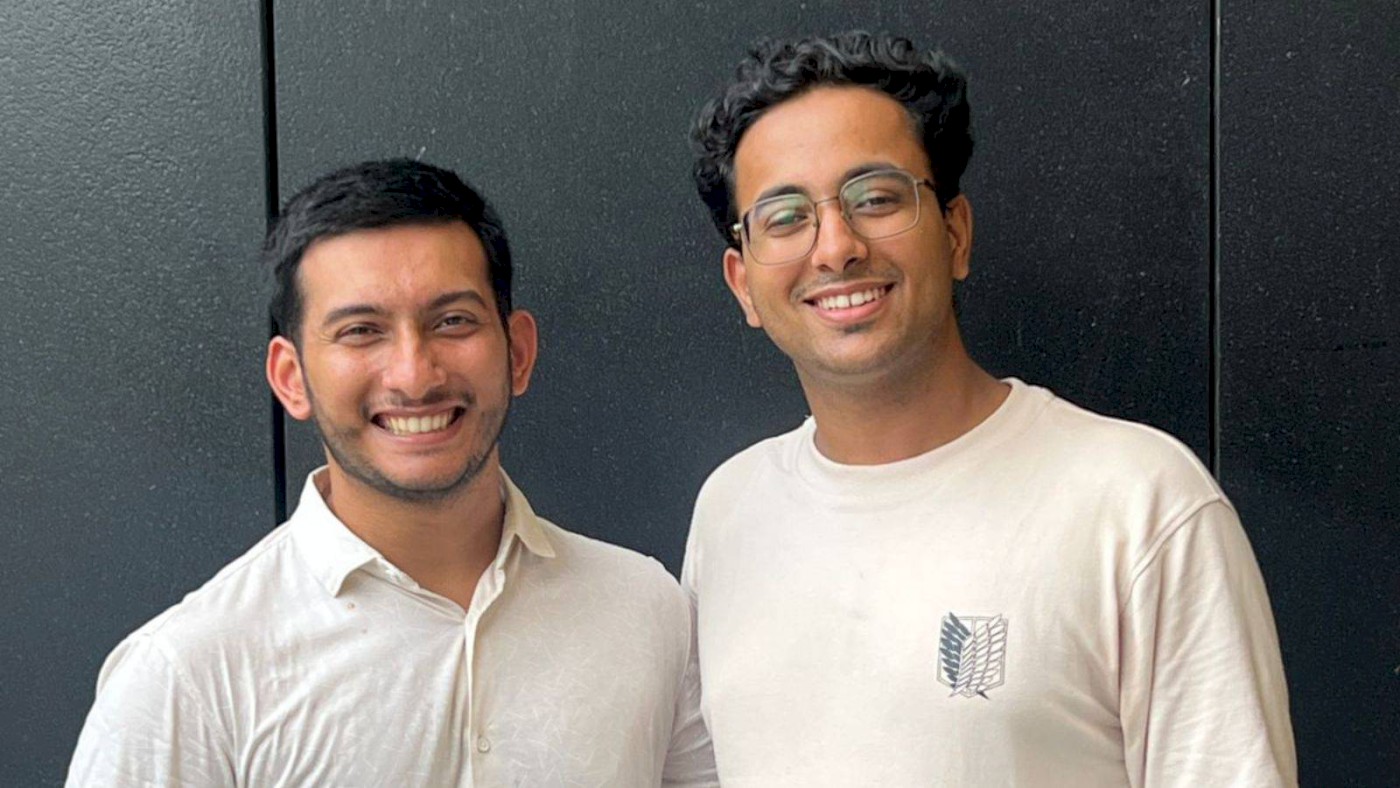30 June 2025
BTech Students' AI Innovation Wins Top Spot at International Eye Segmentation Challenge

A new and efficient computer programme, ShapeGAN-DLV3+, designed by Ahmedabad University students, can potentially revolutionise real-time biometric and medical diagnostic applications. Their innovation has achieved around 92 per cent accuracy in segmenting the sclera (the white part of the eye) in images. Remarkably compact, with fewer than three million parameters, the model is not only accurate but also extremely fast, delivering results in under 25 milliseconds on a single GPU. Its speed, efficiency, and precision position it as a powerful tool for next-generation eye-based recognition and diagnostic systems.
Dhruv Premani and Hariohm Bhatt, BTech Class of 2026, developed ShapeGAN-DLV3+, a lightweight generative–segmentation pipeline. Their method combines a Shape-aware Generative Adversarial Network (ShapeGAN), which produces anatomically consistent synthetic eye images, with an enhanced DeepLabV3+ decoder for segmentation.
The generative front-end compensates for limited real-world data by generating artificial eye images with accurately shaped masks, while the DeepLabV3+ branch learns visual features that transfer effectively from synthetic to real photographs. This hybrid architecture improves model generalisation and boosts performance across varied datasets.
Their innovation earned first place in the Sclera Segmentation Benchmarking Competition (SSBC) 2025 – Mixed Track, with the highest aggregate score across synthetic-only, real-only, and mixed data subsets. They were also the only Indian team on the final leaderboard. The project was carried out under the guidance of Professor Mehul Raval from Ahmedabad University's School of Engineering and Applied Science and Mr Jay Chaudhari, whose expertise in computer vision and research methodology was crucial to the team's success.
SSBC, an international challenge hosted as part of the IEEE International Joint Conference on Biometrics (IJCB), drew 94 teams from 22 countries. Following two blind evaluation phases, 12 teams qualified for the Mixed Track finals. As winners, the team has been invited to co-author a joint paper summarising SSBC outcomes, which will be published in the IJCB 2025 Proceedings (Osaka, Japan, 8–11 September 2025).



